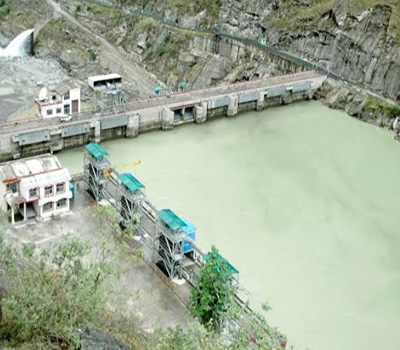New Delhi/Shimla: A fierce battle has unfolding as several State Governments attempt to impose additional charges on the generation of electricity, setting the stage for a legal showdown that could reshape the energy scenario in India ahead of 2024 Lok Sabha Polls.
The Ministry of Power on October 25 has shot off letters to the Chief Secretary of the states and UTs apprising them of the various Constitutional Provisions that term imposition of the water cess or fees or duty on generation of the electricity as "illegal and Unconstitutional".
Several State Governments have sought to impose what they term as development fees, water cess and funds on the generation of electricity, covering a wide range of sources, including hydropower, renewables, and thermal power.
However, this initiative has encountered an unyielding response from the Central Government.
As this conflict intensifies, much remains to seen how the Himachal Pradesh government proceeds ahead as it has also slapped notices on the Power Producers including SJVN, NHPC, NTPC and others in the state as proposed by the Sukhu Government, which has constituted the Commission to execute water cess decision coughing up targeted over Rs 2600 Crore revenue annually on generation of electricity.
The Center firmly contends that such additional charges are not just financially burdensome but are also illegal and unconstitutional.
In a letter dated April 25, 2023, the Ministry clarified the legal position regarding these impositions, particularly focusing on water tax or cess, which had gained momentum in some States.
The Ministry highlighted several crucial constitutional provisions red flagging four major concerns.
1. Powers to levy taxes and duties are explicitly outlined in the Seventh Schedule of the Constitution, with the Center asserting authority over unmentioned taxes through its residuary powers.
2. While State Governments have the power to impose taxes on the consumption or sale of electricity within their territories, they do not have the authority to impose taxes or duties on the generation of electricity. This distinction is crucial, as electricity often crosses state borders.
3. Article 286 of the Constitution specifically bars States from imposing taxes on the supply of goods or services when the supply occurs outside their territory.
4. Articles 287 and 288 prohibit the imposition of taxes on electricity consumption or sale when it involves the Central Government or its agencies.
With these constitutional provisions in mind, the Center firmly asserts that no State can impose taxes or duties on the generation or inter-State supply of electricity under the pretext of additional charges, regardless of the power source, be it thermal, hydro, or renewables.
This resolute stance has ignited a fierce legal dispute between some State Governments including Himachal Pradesh, Jammu and Kashmir, Uttarakhand and others and the Center.
The Center's directive to promptly remove any taxes, duties, or cess labeled as development fees on electricity generation has placed the matter at the forefront of political and legal discussions.











